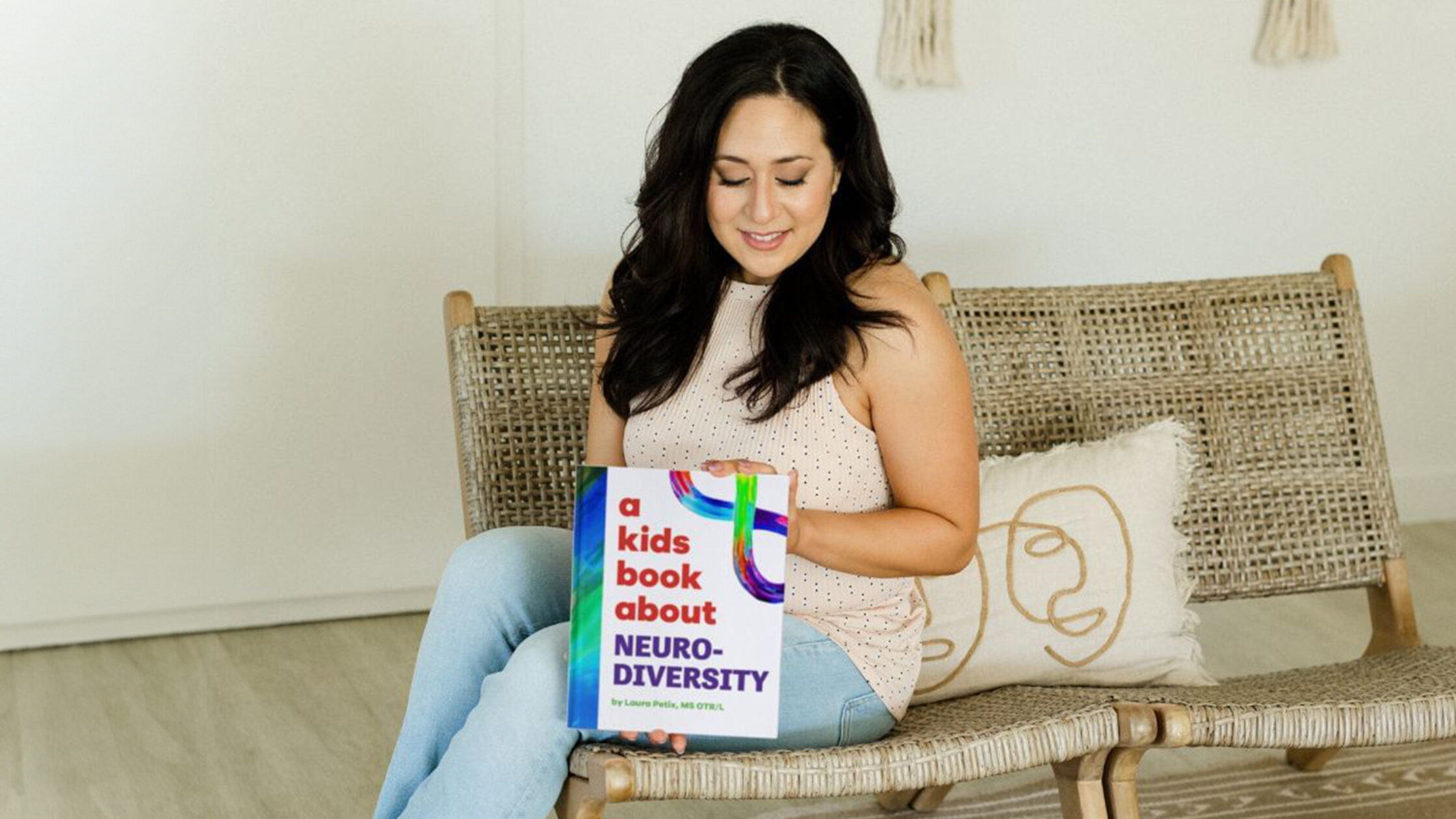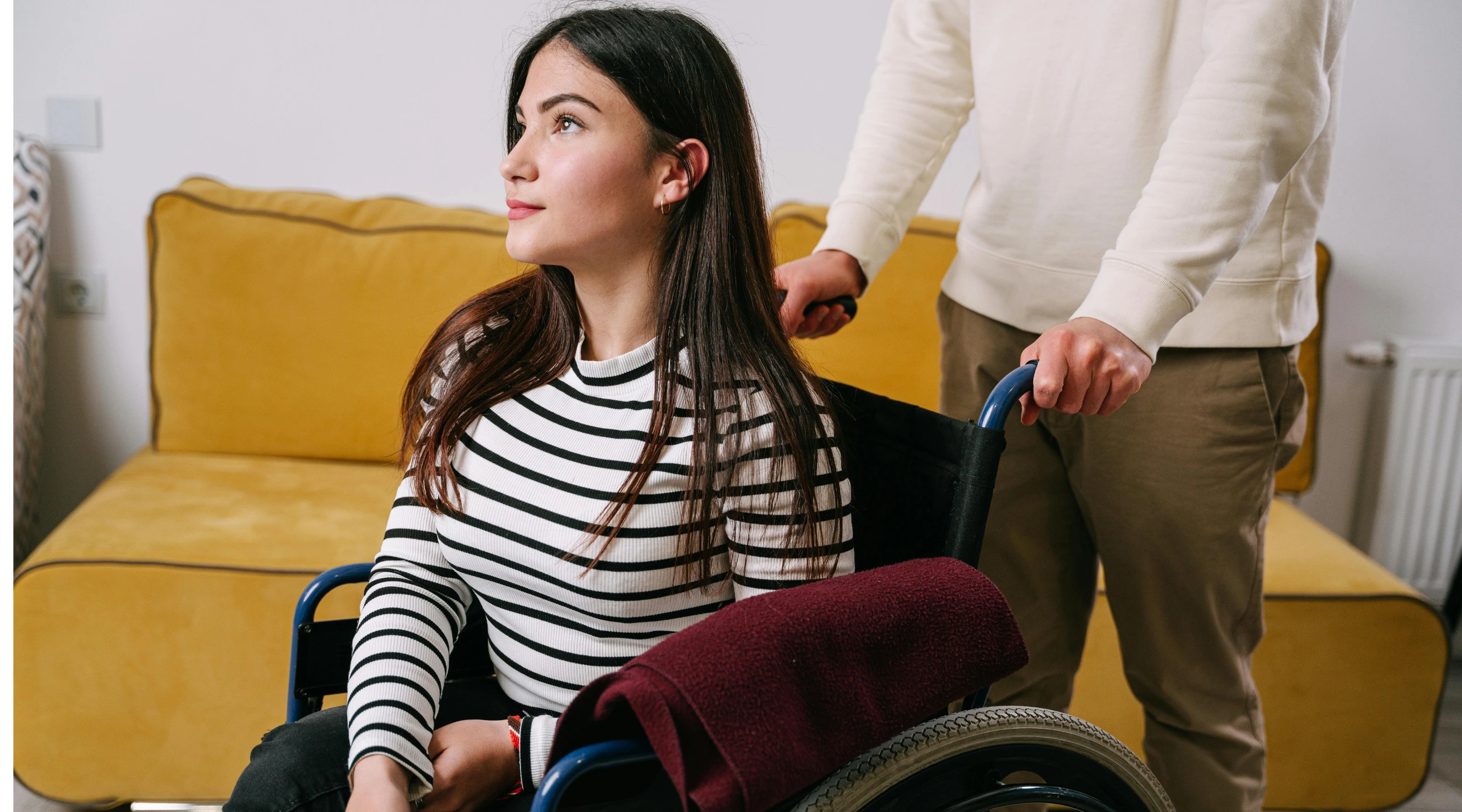Understanding The Uniqueness of Neurodivergence with Laura Petix
As we live in a world that accommodates the neurotypical, Modern Parenting sits down with Laura Petix to see the world from a more inclusive and neurodiverse view.
Although the term “neurodivergent” came out in 1990 from autistic sociologist Judy Singer, the term has become more popular and inclusive today. Some use the term “neurodivergent” only to describe those autistic individuals or those with ADHD. But according to Occupational Therapist and mom, Laura Petix reveals that the net is a lot wider than that!
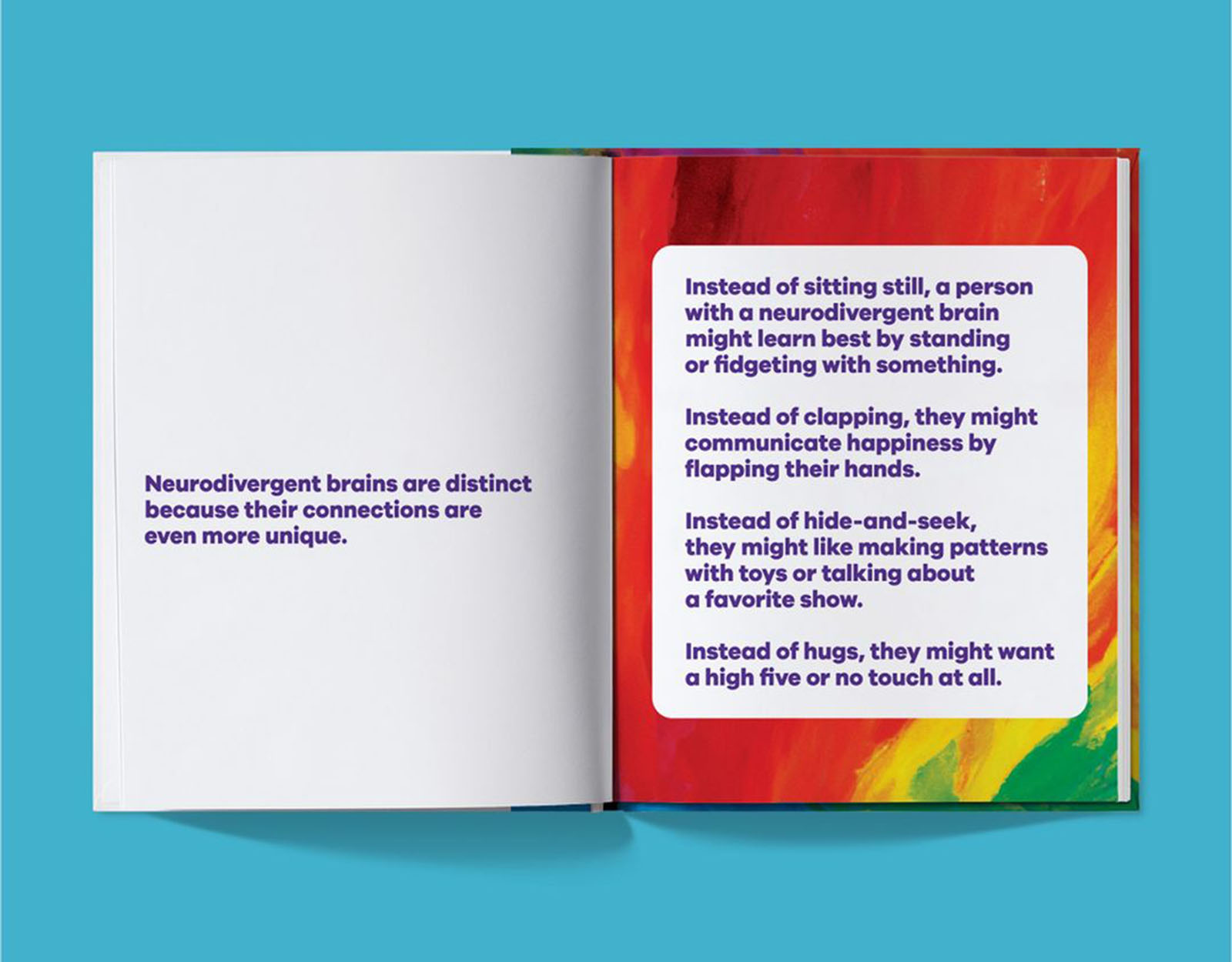
Please describe what being “neurodivergent” means. What are the things you feel people need to know about neurodivergence?
First let’s understand neurotypical. Most humans have brains that are wired in a specific way. There are subtle variations within each brain, which contributes to personalities and quirks and preferences- though overall, most brains follow a particular pattern of development, which results in a specific way of learning, communicating, playing and experiencing the world.
These brains require little to no accommodations in the world and can feel successful and participate in the world as it is without excess stress on their nervous system. The world was built by neurotypical people, for neurotypical people.
There is a subset of people who have brains that are even more uniquely wired than the variations within a neurotypical neurotype; these people have uniquely different ways of experiencing the world, learning, communicating and behaving. These differences make it so that the world as it is, is not so accessible or easy for them to exist and participate in without accommodations.
These individuals are called neurodivergent and can include a wide variety of diagnoses.
Just to name a few: Autism, ADHD, anxiety, PTSD, Sensory Processing Disorder, Tourettes, OCD.
It’s important to clarify the language around neurodiversity, because I often see it misused.
Firstly, if you’re referring to one individual, we refer to them as either neurodivergent or neurotypical; a singular person cannot be neurodiverse.
Neurodiverse refers to a group of people (2 or more) with different neurotypes. So if we’re in a room with one neurotypical person and one neurodivergent person, that group is neurodiverse. If we are in a room with all neurotypical people, that group is NOT neurodiverse.
If we’re in a room with all Autistic individuals, that group is not neurodiverse – though it is collectively made up of Autistic, neurodivergent people.
We saw a post on your Instagram when you opened up about being neurodivergent. But was it like when you discovered your neurodivergence?
I always talk about parenting like a mirror- your children are reflections of not only your current self, but your childhood self. I have learned so much about myself as an adult and also have started piecing things together about my childhood just by learning more about my daughter’s brain and how she’s wired.
I’ve always been described as the shy girl, the cautious and timid girl, the scaredy cat, the anxious one. I remember being so emotionally sensitive as a child and my cousins would constantly tease me about that. As an adult, I have pretty similar behaviors and challenges. I’m still quite anxious, I over-plan, over-think, over-stress about daily tasks; I am still quite sensitive both emotionally and sensory-wise (I am sensitive to busy environment sounds and when there’s a lot of different sounds going on at once).
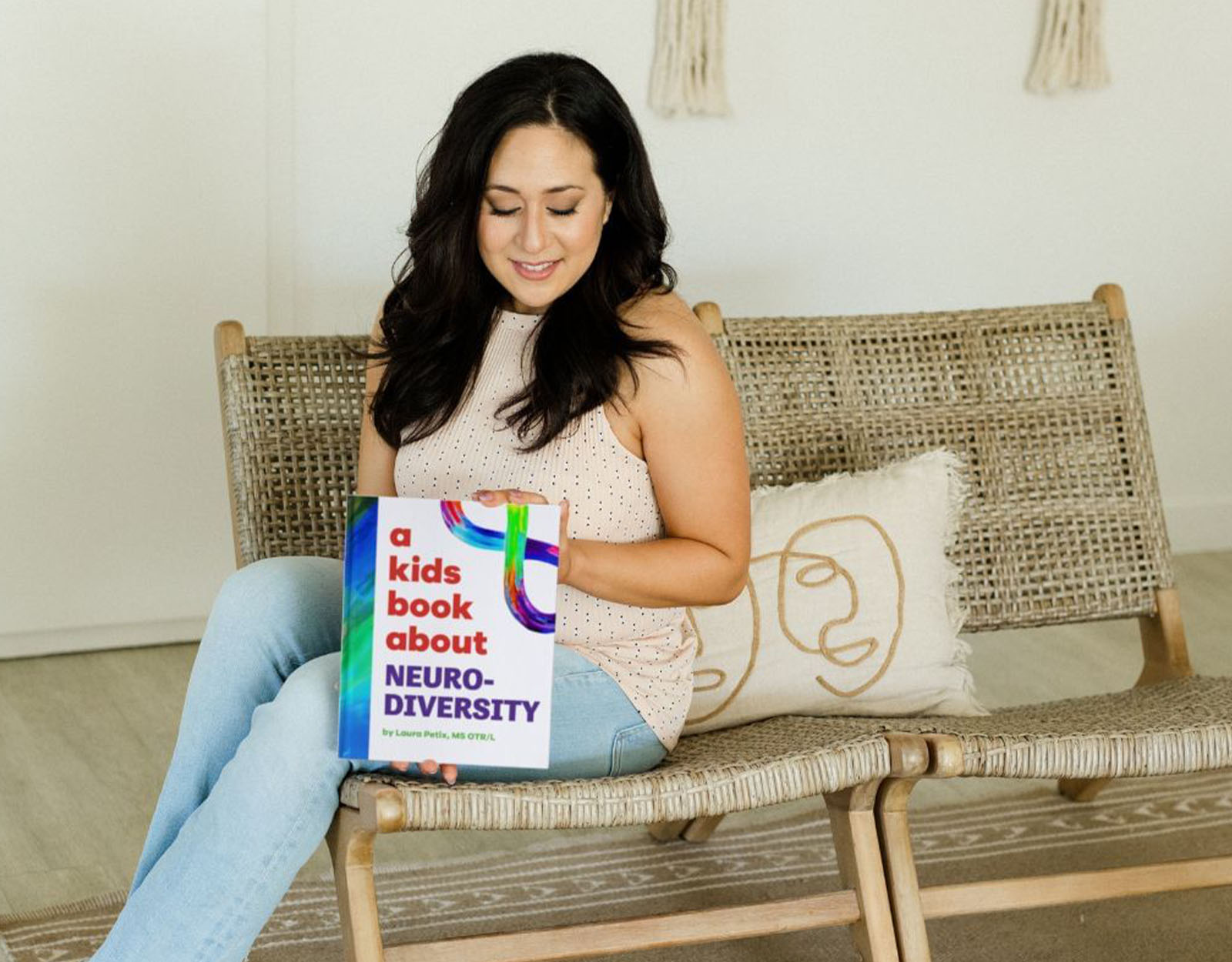
How did you deal with it?
These are things I knew about myself and was well aware of, but I never put these behaviors/traits together into a pattern and identified as neurodivergent until I realized how much it impacts my daily life. I started realizing how many accommodations and lifestyle changes I need to make just to feel secure; when other people (neurotypical people) don’t.
It’s extremely liberating and healing to be able to just identify as neurodivergent and I find myself going easier on myself when something is hard or stressful; rather than pushing against it and beating myself up for it, I’m more compassionate because I understand the world wasn’t’ built for brains like mine, so it’s not my fault and it makes sense that I have a hard time.
There are so many terms for people who are neurodivergent. On YouTube, some streamers use the term “neurospicy” — what’s your take on that?
I think this comes from parents who are still uncomfortable with using the word neurodivergent, or maybe aren’t quite sure if their child is neurodivergent yet or not, so they may be hesitant to use the word neurodivergent. I don’t think there’s anything inherently wrong with this, as long as the parents are of the understanding that yes, their “neurospicy” child has a differently wired brain and may need different kinds of support than that’s universally provided.
How would you explain “sensory is behavior?”
One of the questions I get all the time from parents or teachers is “my child is doing XYZ at home, but how do I know if it’s sensory or behavioral?”
What I know they mean by that is, “Is my kid doing this behavior on purpose (to get attention, to control me, etc) OR is it because they can’t help it because there’s something triggering their sensory systems?
I always reframe this by saying sensory IS behavior.
Behavior is anything that we do that is observable; laughing, screaming, crying- these are all behaviors. A child stomping their feet is a behavior, but so is a child scratching their leg or pacing back and forth.
Behavior is not bad (and I think the term behavior gets a bad wrap in the parenting space, often utilized in a way to imply something negative like misbehavior). Behavior is just a reflection of the state of the nervous system.
Instead of asking “is it sensory or is it behavior” we should ask “what is my child’s behavior telling me? Is it being triggered by a sensory component, or is it something else that’s impacting behavior?
Not all behaviors are sensory driven, but all sensory responses are behaviors.
If a child is at a busy birthday party and the lights are bright and the kids are screaming loudly, this child may feel overwhelmed from a sensory perspective and go into fight or flight mode (e.g. kicking/screaming, running away). That behavior is driven by a sensory trigger, so sensory = behavior.
As a mom and as an individual, what was it like when you discovered that your daughter was also neurodivergent?
I have a unique perspective as a professional who works with neurodivergent children and was around neurodivergent children before I was a parent; I knew what signs to look out for and so I’d say I knew my daughter was neurodivergent before other professionals did; in fact, no one initially believed me when I first started raising concerns when she was around 13 months.
Our hardest time was the period between 18 months and 3 years old because these are the times when it’s common to see meltdowns and tantrums, so every time I’d bring this up with my doctor – they’d say “That’s normal”. When I was clearer with explaining how intense her meltdowns were, they started to believe us more.
At that time, we were experiencing up to 90 minute long meltdowns multiple times a day; sometimes resulting in her wetting her pants or hitting her head/biting herself and it was causing significant impact on our daily lives (we couldn’t leave the house, our nanny kept canceling, I had to cancel work several days to deal with a meltdown).
The biggest struggle at this time was feeling isolated because we felt like we had a completely different parenting experience than those around us; I couldn’t find one positive thing to say about parenthood while everyone around us kept talking about all the fun, joyous moments that we weren’t experiencing much of.
We also were isolated even further just by not being able to join playdates or family parties because we knew she wouldn’t be able to attend those without having big meltdowns.
Meltdowns happen especially when things become overwhelming! As mom, how do you and your child deal with those moments?
I always keep a pair of noise reducing earplugs with me and use them anytime I start feeling like the environment is a little too stressful. I also try to remind myself to do my breathing exercise when I can sense a meltdown brewing; step one to helping your child through a meltdown is ALWAYS to help yourself first.
I’ve also learned that my daughter does not like being spoken to during a meltdown, and it makes sense because I feel the same – when I’m already stressed and overwhelmed, if someone asks me what I want or tries to verbally calm me down, it just adds more auditory input and I get even more stressed. My daughter is the same.
During the meltdowns themselves, I limit my verbal instructions and questions – and really just try to have a calm presence for my child – it’s not always possible, and I’m not perfect, but this is always my intent. If there is aggression, I focus on containing the aggression in anyway I can – whether it’s blocking her hits, grabbing her wrist or having to bearhug her to protect herself from self harm. I save all the lessons and talks about what to do instead of hitting for after th meltdown is over, when her thinking brain and neocortex is back online.
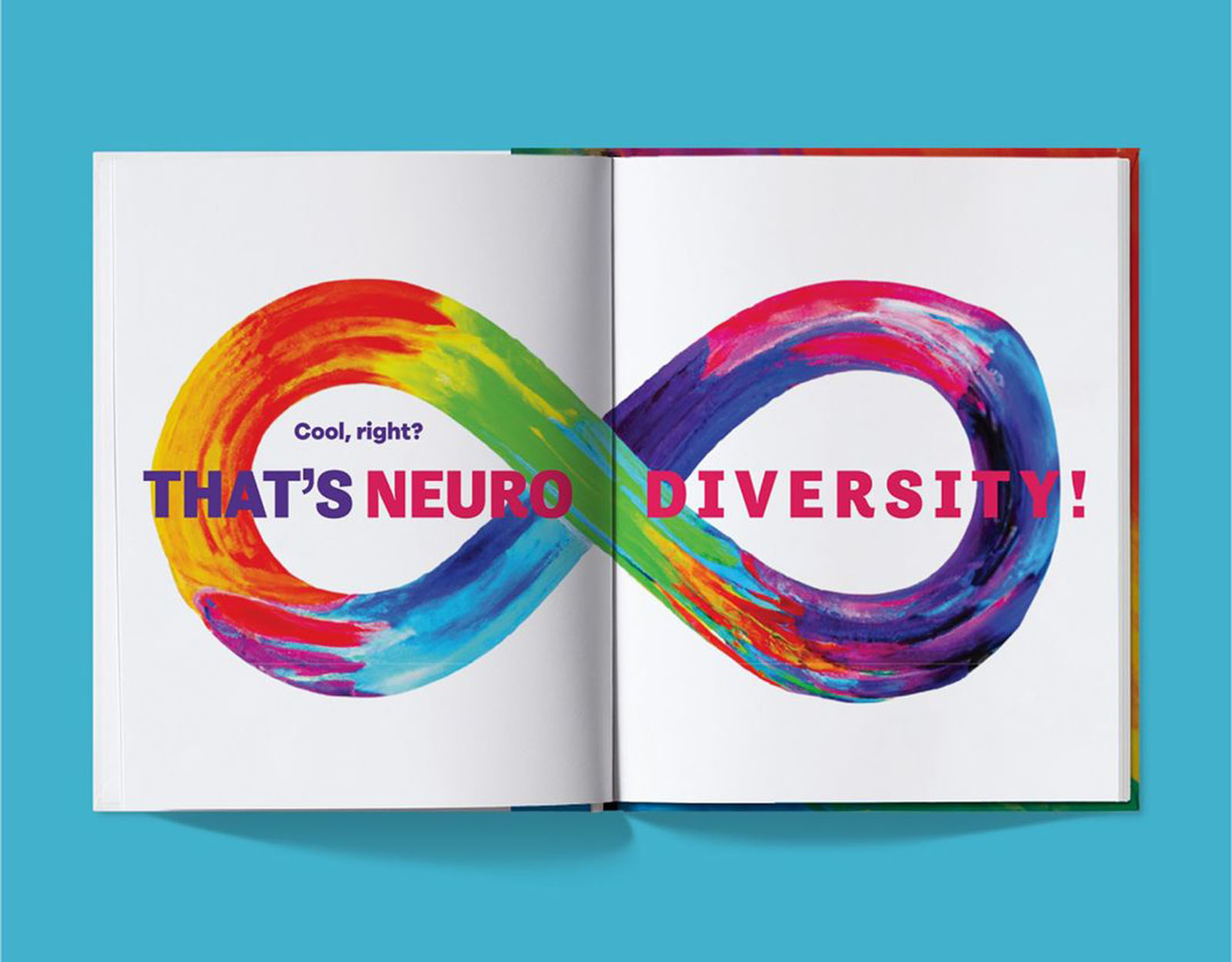
How do you deal with other parents who don’t understand or believe in “neurodivergence” and think it’s just a phase?
I always remember that some parents are still not well educated in this space; some parents still think neurodiverence only means Autism and some parents still have a very narrow view of what Autism is. If parents knew that neurodivergence can include so many different kinds of brains, and knew that Autism looks much broader than what we thought we knew before, they may be more inclined to see neurodivergence in their child.
I also think that it’s true, some kids will go through phases of behavior and then stop; not every behavior will always indicate neurodivergence, but it’s important for parents to make sure they don’t have a wall up.
A lot of parents fear the label and the stigma of being neurodivergent but what are some ways the labels have helped you become the mom your daughter needs?
Labels have been nothing but helpful in our household and I know that educating my daughter and our community and our family members early on is what combats the stigma around neurodiversity. The stigma is there because there is so much misinformation around neurodiversity.
Being able to identify with a neurodivergent label can provide validation. It can also provide a sense of community. Knowing what kind of brain you and your child have also helps you save time when learning about approaches or strategies for support because you have a more narrow path to search, rather than looking at every parenting tip out there.
But most of all, I think having the knowledge that I have a neurodivergent brain (and telling my daughter about her own neurodivergent brain) contributes to so much positive self-esteem, self worth and confidence; without this label, we might feel inadequate, or like we’re doing something wrong, or other people are better than us, when in reality, we just have a different way of seeing the world.
What are things you feel neurotypical parents and children can do to understand what it’s like to be a neurodivergent individual?
Talk about it! It’s so helpful for parents to talk to kids about how different brains and bodies need different things; maybe one person needs music to focus on homework and another person needs complete silence. Maybe one person needs to exercise and move and run before starting their day while another person needs quiet, calm, meditation. Just starting there can be a great start.
Then when they see others in the community, you can later reflect on that and say things like “Hey I noticed you were looking at that kid in the store today, they had headphones on and were flapping their hands – did you have a question about it?” You can further explain “They have a brain that probably is bothered by sounds in the store; even if it doesn’t bother you or I, it’s bothersome to their brain.
And some kids like to move their hands and bodies in different ways to feel safe and calm – you like giving mom and dad a hug, but that kid we saw probably likes to flap their hands – that’s called neurodiversity!”
More about parenting?
How Tony Snell’s Late Autism Diagnosis Helped Him and His Son
Adulting With ADHD or Autism: Coping in the Typical World
Autism: In The Eyes of A Child And Now, An Adult
